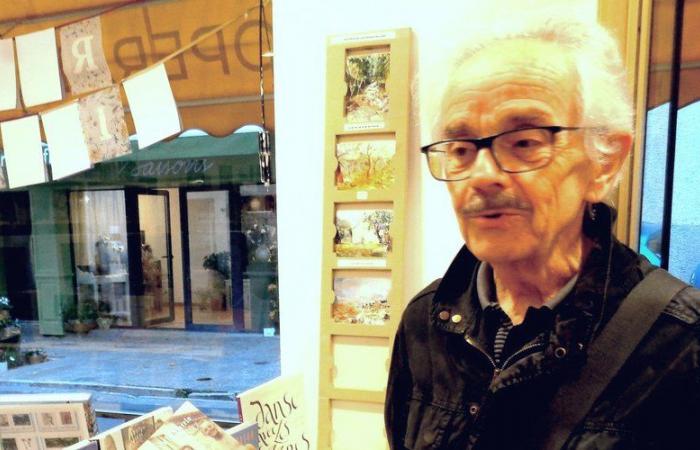The journalist, editorialist, writer has released his latest book, “L’Enfant de la Matrie”, published by Balzac, which he will present on Saturday October 19, at 3 p.m., at Espace Gibert. An autobiographical novel which immerses the reader in the footsteps of his childhood, in Razès, just before his arrival in Lézignan where he will live until he is 21. Interview.
At the end of the summer, you published “L’enfant de la Matrie”, an autobiographical novel. So what does this word, “Matrie” mean?
This is the place where, when I was little, I spent my holidays. It’s the name of an estate, near Limoux, in Razès, where my uncle worked. In this book, I tell about my family who were Italian on my father’s side. My grandfather, a colorful character who spoke a lot, had fled Mussolini’s fascist regime following threats. He had managed to take his family, not without difficulty, to the south of France, near Toulouse, then Carcassonne… Later, one of my uncles would work, as a “ramonet”, a manager, to Matrie, the word of which also means “the land from which we come”. I also tell the story of my mother’s side of the family, who came from Spain after the First World War to a France that needed workers. My grandfather was 14 or 15 years old when he arrived to settle in Saint-Couat, Capendu, Camplong, Blomac… Agricultural workers moved around a lot at the time.
Why did you choose the fictionalized autobiography?
I wrote columns in The Independent for many years. From 1997 until my departure in 2008, they focused on current events, obviously, but, more and more, I revealed my feelings. I received a lot of feedback from readers and it stuck with me. So, one day, I wanted to dig a little deeper into the personal side, I did some research on my family… And to fill in the holes, I embroidered a little: because I didn’t have everything told but also to maintain a certain modesty…
I tried to write this book at a child’s level
You talk about the life of your family but, more generally, is it also a portrait of post-war Aude society?
A little too. It is the story of the condition of immigrants who worked the land at that time. Little people, as they say, who did not have an easy life, who did not speak French, who sometimes lived in slums, who were exploited and who suffered. People who didn’t have too many prospects, who hoped for a better future for their children and who wanted to integrate.
Above all, I tried to write this book at a child’s level. A child who does not necessarily understand everything around him but who describes what he sees and who today delivers it with his perspective and his experience as an adult, as a grandfather.
Have you been tempted to illustrate your point with old-fashioned accents like “it was better before”?
Especially not! I don’t like the expression “those were the good old days” at all. I didn’t try to embellish the past. I’m not saying that the present is heavenly either, but the past wasn’t great either with its wars, poverty, epidemics…
Is it about Lézignan?
No, not in this one, which ends in 1956, but in the next one, which will be called “The Ungrateful Age” and which is already written: it should be released in 2025. I lived in Lézignan from 7 to 21 years old. I am very attached to this city where I have many friends, many memories…






